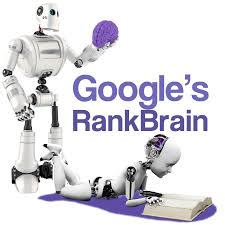How AI Will Transform the Landscape of SEO

How AI Will Transform the Landscape of SEO
One of the main topics doing the rounds In SEO circles is that of machine learning. |What is it and what does it mean? An excellent article by Jeremy Knauff describes how machine learning and AI work to impact rankings and what it means for SEOs. We at Expressly SEO have provided a summary but click here if you want to read the full article.
Artificial intelligence, or AI, has been a trending topic in the search engine optimization industry. It’s also widely misunderstood. A lot of the widely-held beliefs about AI are based on speculation, surmised from patents and search engine behaviour. Unfortunately, speculation frequently leads to fear — and fear sometimes empowers the industry’s con artists. I wonder how long it will be before we start seeing practitioners claiming to offer “AI-proof” SEO services.
The most important thing to understand about AI is that it is not a static formula to solve. It’s a constantly evolving system designed to identify, sort, and present the data that is most likely to meet the needs of users at that specific time, based on a multitude of variables that go far beyond just a simple keyword phrase.
AI is trained by using known data, such as:
•content
•links
•user behaviour
•trust
•citations
•patterns
and then analysing that data using user experience, big data, and machine learning to develop new ranking factors capable of producing the results most likely to meet user needs.
Welcome to RankBrain
RankBrain is Google’s machine-learning artificial intelligence system that helps process its search results, which uses an entirely new way of processing queries according to Greg Corrado, a senior research scientist at Google who is involved with RankBrain.
“RankBrain uses artificial intelligence to embed vast amounts of written language into mathematical entities — called vectors — that the computer can understand. If RankBrain sees a word or phrase it isn’t familiar with, the machine can make a guess as to what words or phrases might have a similar meaning and filter the result accordingly, making it more effective at handling never-before-seen search queries.”
Google tells us that RankBrain has quickly become the third most important factor in their overall algorithm for ranking webpages (right behind links and content). This is because unlike previous versions of their algorithm, it is very effective at analysing a query and returning the most relevant content even when it doesn’t contain the keyword phrases used in the search.
This means instead of repetitively trying to force a particular keyword phrase into your content, you can and should focus on writing naturally, as you would if organic search wasn’t a factor. Naturally, Google can rank a webpage based on the content it contains, but under the right circumstances, they can also rank it based on information that isn’t even on the page. Because of this, you should include related terms and concepts whenever you can do so naturally because it will add more value for users, which helps send Google more positive ranking signals.



